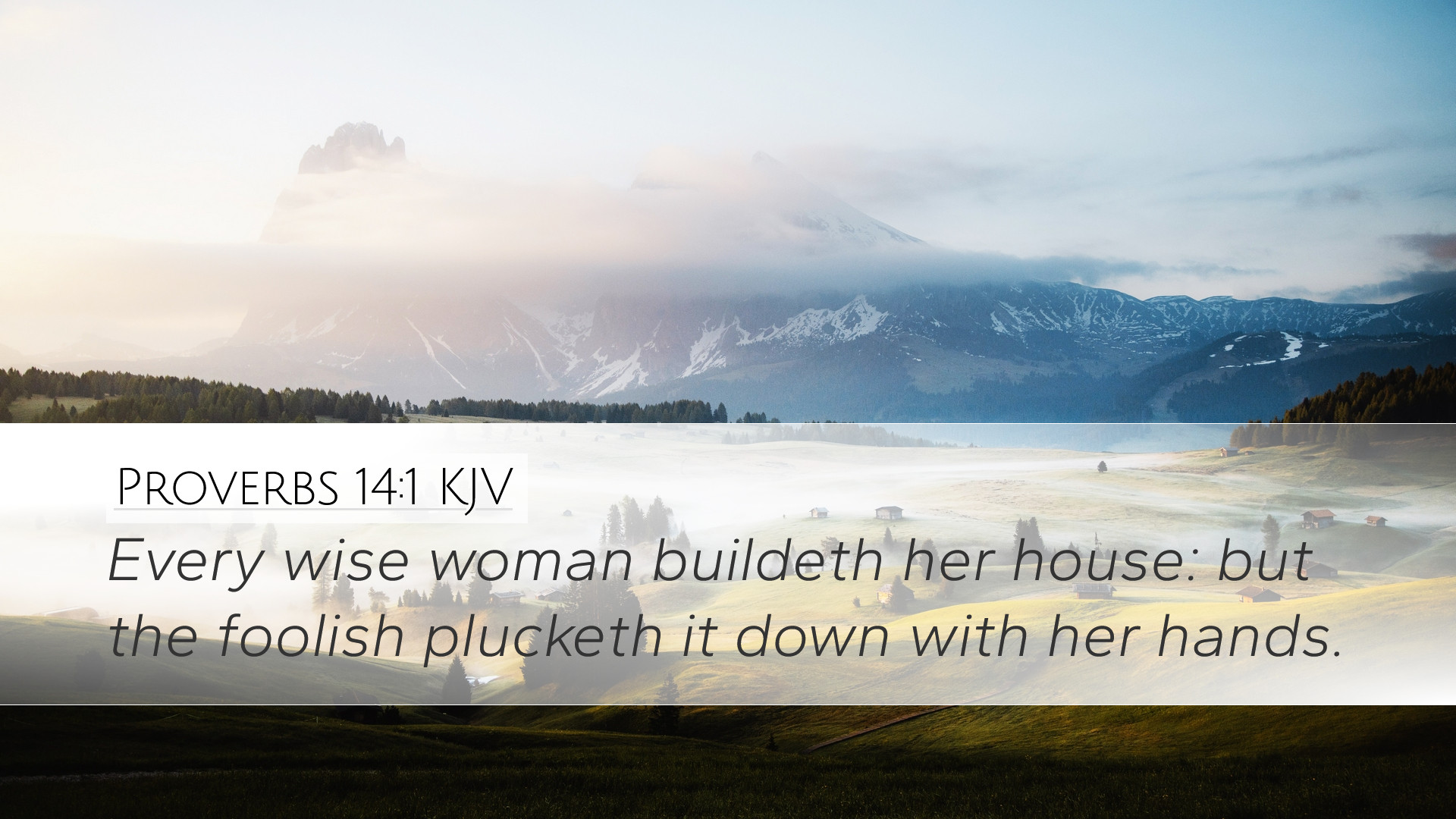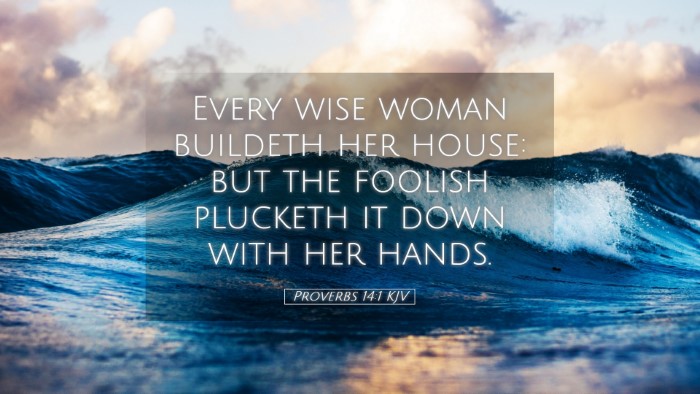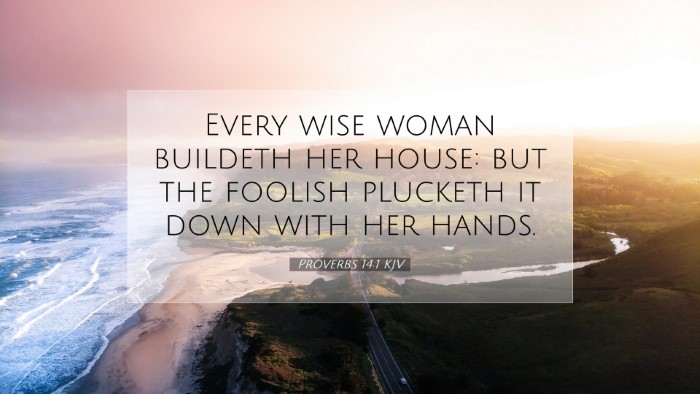Commentary on Proverbs 14:1
Proverbs 14:1 states, "The wise woman builds her house, but with her own hands the foolish one tears hers down." This verse contrasts the actions and consequences of wise and foolish women, serving as a profound metaphor for the broader principles of wisdom and folly in life. Below is a summary of insights drawn from public domain commentaries, organized for clarity and depth.
General Overview
This verse encapsulates themes central to the Book of Proverbs, emphasizing the fundamental role of wisdom in daily living. A wise woman is portrayed as a builder, one who uses her skills and knowledge to create, support, and nurture. In stark contrast, the foolish woman is depicted as one who, through her own actions, actively destroys what could be a stable and loving environment.
Insights from Matthew Henry
According to Matthew Henry, this proverb highlights the virtuous qualities of a wise woman. He notes that her strength lies not merely in physical construction but in her ability to foster love, peace, and stability within her home. She employs wisdom to promote harmony, thereby creating a sanctuary for her family.
Henry elaborates that the foolish woman, on the other hand, is self-destructive. Her actions stem from a lack of insight and care, which ultimately leads to her own ruin and the disintegration of her household. He emphasizes that the foolish woman acts impulsively, indicating how folly can lead to tangible destruction in one's life.
Insights from Albert Barnes
Albert Barnes examines the social and moral implications of this verse. He points out that the “house” symbolizes not just a physical dwelling but also familial relationships and moral integrity. A wise woman's ability to "build" extends beyond physical structures; it includes the cultivation of virtues such as love, commitment, and spiritual depth.
Barnes also remarks that the term “foolish” indicates a lack of wisdom and discernment. He suggests that this folly often manifests in poor choices that can lead to larger societal consequences. The destruction wrought by her hands metaphorically reflects the consequences of neglecting one’s duties and responsibilities, highlighting the wise woman's foresight as the antidote to such folly.
Insights from Adam Clarke
Adam Clarke provides an in-depth analysis of the term “builds her house.” He interprets this to mean that a wise woman invests in her relationships, nurtures her family, and promotes a spiritual environment conducive to growth and well-being. Clarke argues that the "house" signifies a legacy built upon wisdom and virtue, affecting generations to come.
Clarke also discusses the destructive nature of the foolish woman. He notes that her actions representative of folly include destructive behavior that disrupts harmony and stability. Thus, her hands symbolize the active participation in her family’s demise. Clarke emphasizes the importance of prudence and diligence in building a healthy home, illuminating the responsibilities that rest on the shoulders of those who lead within it.
Theological Implications
This verse holds significant theological implications, inviting reflection on the nature of wisdom and folly from a biblical perspective. It challenges readers, particularly pastors and theologians, to consider the broader application of this principle in their lives and communities.
- The Wisdom of God: The verse reminds believers that true wisdom is rooted in God. As seen in the context of Proverbs, wisdom involves understanding God’s will and living accordingly.
- Role of Women: The portrayal of women in this verse opens a discussion on the empowerment of women in biblical contexts. It advocates for women to take on roles that contribute positively to their families and communities.
- Consequences of Actions: The dichotomy of building and tearing down signifies the profound impact one’s choices can have on familial and communal structures. It warns of the repercussions of foolishness not just on oneself but on others.
Practical Applications
The timeless nature of this proverb calls for practical applications in contemporary settings. It challenges individuals, especially women, to actively engage in building up their households, whether literal or metaphorical. Here are some practical considerations:
- Building Relationships: Focus on enhancing relationships within families and communities by fostering open communication and support.
- Investing in Education: Encouragement to invest in personal and spiritual education that equips individuals to lead wisely.
- Modeling Virtue: Adults should model virtuous behavior for the younger generation, acting as mentors who guide future leaders.
- Emphasizing Community Support: Creating environments that uplift others and build community resilience against the destructive forces of folly.
Conclusion
Proverbs 14:1 serves as a powerful exhortation to cultivate wisdom and to reflect on the tangible outcomes of our daily actions. It encourages an introspective examination of one’s role within the family and community while affirming that wisdom, as a divine gift, lays the foundation for a prosperous and harmonious life. For scholars, students, and spiritual leaders alike, this verse challenges us to become builders of our homes and societies, using wisdom as our guiding principle.


